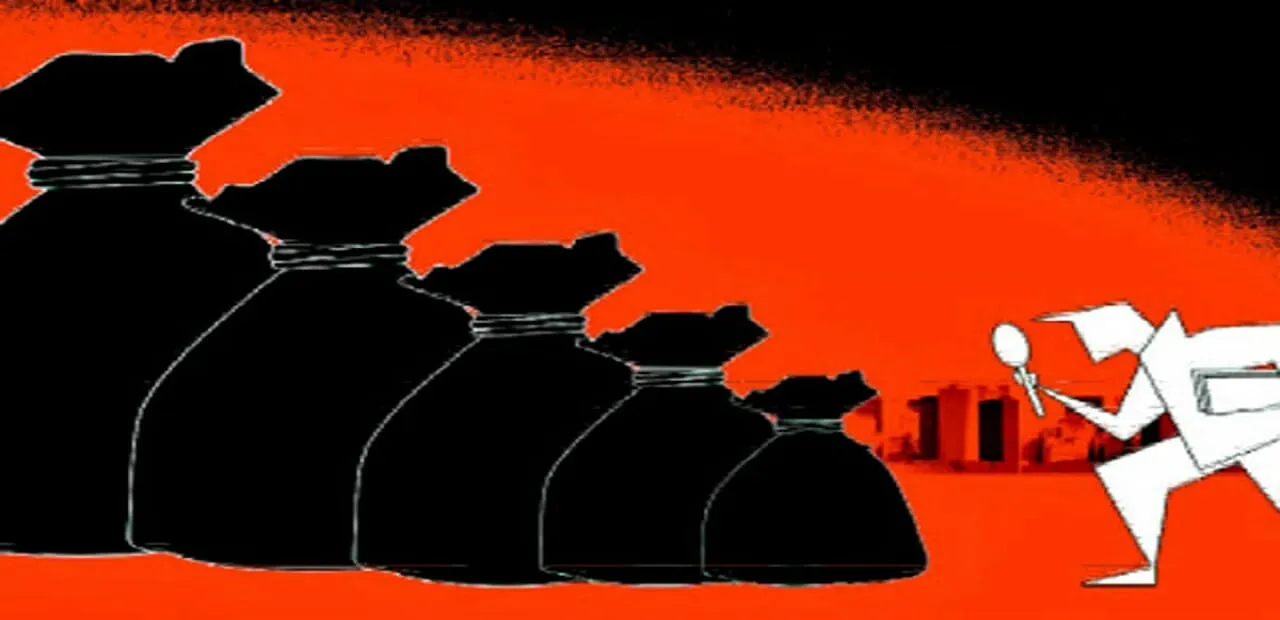
Money earned through illegal means or by way of covert activities is called Black Money. This money remains deposited with people. As it is earned through corrupt methods and income tax is not paid on it, it is very important to hide it. In the public jargon, it is also called “dirty money”. The chief sources of black money are thefts and misappropriations in income tax, excise duty, property tax, death tax and customs duty. Money earned through smuggling is also deemed black money. Money earned through the activities of black-marketing is also falls under this category. Funds received through the acts of bribery are also a part of black money. We have defined the sources of black money in the preceding text. On the basis of these sources, one can easily conclude who are the people who could be having black money. In the category of such people, industrialists, owners of factories, traders, shopkeepers (both wholesalers and retailers), owners of buildings, landlords, individuals engaged in businesses of imports and exports, politicians and government officials on high posts. But this list is not exhaustive; many more names can be added to it.
Today, the activity of collecting and hoarding black money is flowering at a very fast pace. According to the broad estimates of the National Institute of Public Finance and Policy, people in India have black money deposits of Rs 37,000 crore with them. Remember that this amount can be larger than this figure too, it is based on an estimate because those who have black money do not give its accounts to anyone. The International Monetary Fund (IMF) has also estimated the amount of black money of many nations. It has been stated in its estimate that the amount of black money is 50 per cent of her Gross Domestic Product (GDP). According to the estimate of IMF, the amount of black money in India ranges from Rs. 80,000 crore to Rs. 90,000 crore.
Why is the business of black money growing by leaps and bounds in our country? Some genuine reasons in this context are as follows:
.(1) Lust for money,
(2) Too much of materialism,
(3) Weak laws,
(4) Complex procedures to earn money with honesty
(5) Awareness of the fact that money can buy everything and all types of good or bad deeds can be got done from any person through its use.
The fact that this has become an incurable disease is not a hyperbole. However, some suggestions can be given to check the spread and effect of black money:
(1) The government should control its expenses and these should be monitored,
(2) High-deficit budgets should not be made,
(3) Expenses being incurred on the government projects should be strictly monitored,
(4) In the government administration, the self-discretionary rights of senior officials in Industrial licensing department, income tax department, company law department or any other department should be either made defunct or minimized. Bias, corruption and black money are created because of the perpetuation of these very rights.
(5) The taxation system should be pragmatic; the rates should not be very high because if they are moderate, people would not resort to acts of tax evasion.
(6) The departments that collect taxes should be efficient and honest.
(7) There should be a provision for harsh punishment for the acts of tax-evasion. (8) In the Institutions like state legislatures, government departments, financial institutions, judiciary, etc., the work should be of high quality. All their tasks should be done at the right time and the administrative machinery should be transparent (which means That actions and data should not be kept secret). If this is done, then the possibilities of corrupt practices and bias behaviors would be lessened. We can expect that the product ion of black money would be at least reduced due to the aforesaid remedies.